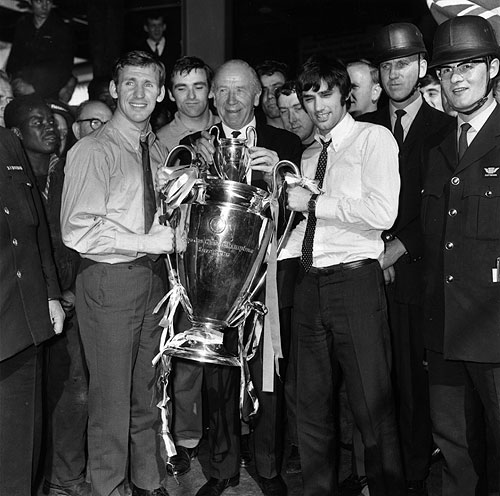
Alex Ferguson's career as Manchester United manager mirrored Matt Busby's in so many ways but one thing he and the club will be determined to avoid is the decline the team suffered after Busby first retired in 1969.
- Ferguson steps down as Manchester United manager
- Will Moyes or Mourinho replace Ferguson at United?
- Sir Alex's glittering managerial career
United will strive to ensure that whoever follows Ferguson can keep the club at the peak of the English and European game so they do not suffer the decades of relative failure that followed the messy end of the Busby era 40 years ago.
Busby created the modern United out of the smouldering World War Two bomb wreckage that all but destroyed Old Trafford, then pulled himself and the club through the Munich air disaster that claimed the lives of so many of the Busby Babes in 1958 and eventually achieved glory by winning the European Cup in 1968.
But United rapidly declined after he retired in January 1969 to move upstairs as general manager and then as a director and in 1974 the unthinkable happened when they were relegated.

Six years after becoming champions of Europe, United suffered the humbling experience of playing the likes of Notts County, Oldham Athletic and York City in the second division.
The late George Best, who along with Bobby Charlton and Denis Law, inspired United to greatness in the 1960s, pinpointed the start of the decline as the night Busby achieved his lifelong ambition of winning the European Cup in May 1968.
"For Matt and Bobby Charlton, for Bill Foulkes, for Denis Law... they'd done it. And then they sat back, and you could almost hear the energy and ambition sighing out of the club. It was like being in at the winding up of a great company."
Busby announced his retirement on January 14 1969 with United sixth from bottom of the old top flight first division.
With his 60th birthday on the horizon, Busby felt his life's work was done and United needed a younger man but there was no immediate successor to replace him.
Those who took on the challenge -- Wilf McGuinness, Frank O'Farrell and later Tommy Docherty, Dave Sexton and Ron Atkinson -- never came close to recapturing Busby's successes.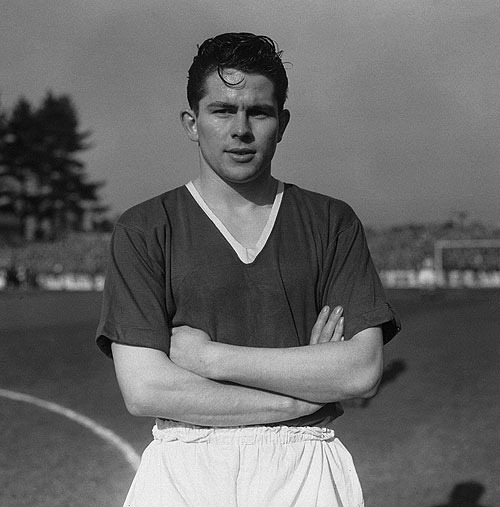
Don Revie of Leeds United was immediately installed as the bookmaker's favourite to succeed Busby, but Busby did not like his playing methods or tactics.
Sexton, who eventually managed United in the late 1970s, was approached but did not want to quit Chelsea and move north and eventually the job was given to McGuinness, who had been at United, first as a player and then a coach for 17 years.
United's results were poor and halfway through the 1970-71 season they had won only five of their 22 league matches.
McGuinness was demoted to reserve team manager three days after Christmas in 1970 and Busby took over again, determined to do the job on a temporary basis until he found the right man.
McGuinness resigned from the club soon afterwards and eventually lost all his hair, which he later explained as the result of the trauma he suffered trying to follow Busby.
The man Busby had in mind to replace McGuinness was his fellow Scot, Jock Stein whose Celtic side had become the first British winners of the European Cup in 1967.
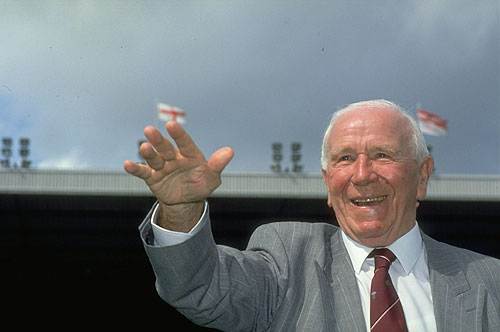
Stein and Busby met secretly in a motorway service station and Stein agreed to take the job, before having second thoughts about working in Busby's shadow and turning United down.
The turmoil continued.
Best missed training and was fined and suspended by the club, United's form was poor and, even after O'Farrell arrived at the start of the 1971-72 season, the rot had truly taken hold even though they made a bright start to the campaign.
Eventually, after only 18 months, O'Farrell was sacked in December 1972 after a 5-0 defeat at Crystal Palace.
Years later he did not remember his time at United all that fondly, or the role played by Busby.
In an interview with the Daily Telegraph in 2008, O'Farrell said: "He was always about somewhere where the players could find him... After one game he told me I should have dropped Bobby Charlton.
"Another time he told me (centre back) Martin Buchan (O'Farrell's first signing) was responsible for letting in all the goals we were conceding but I knew they weren't his fault. Busby was always interfering."
United, and Busby, put their faith in another Scot, Tommy Docherty, who later enjoyed success by bringing the FA Cup to Old Trafford in 1977, but could not stop them going down to the second division in 1974.
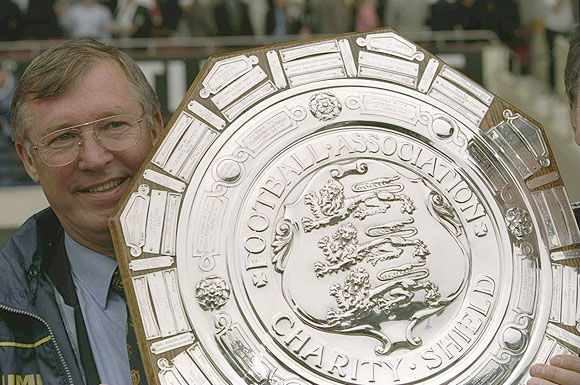
The trauma of relegation, after 36 years in the first division was enormous, effectively sealed by a back-heel from Law, one of their greatest ever players.
Ironically, Docherty had allowed Law to leave United for one of his former clubs Manchester City at the start of the season.
The result of City's 1-0 win at Maine Road stood even though United fans invaded the pitch and forced the game to be abandoned with five minutes to play.
It was Law's last ever touch as a City player too as he retired at the end of the season.
United only began to recapture the glory years after Ferguson arrived in 1986, although it took him until 1993 to clinch their first league title since Busby won it in 1967.
By the time Ferguson arrived Busby was approaching his 80s and, although still a constant presence as the club's president, he no longer had any direct influence at managerial level -- apart from giving Ferguson plenty of fatherly advice.
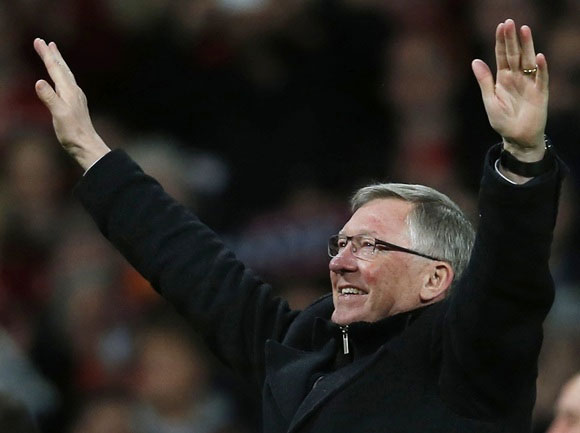
When Ferguson surpassed Busby's 24 years in charge in Dec, 2010, he spoke effusively about his mentor.
"In some ways it is a shame that I came in the latter part of his life," Ferguson told The Guardian at the time.
"But on the flip side, it was fantastic he was here and I used to have a lot of good chats with him. You always knew he was in the building because you could smell his pipe.
"I'd go for a chat and a cup of tea with him whenever I had the chance. He was a lovely man who was always keen to offer encouragement to me."
United must hope whoever follows Ferguson down Sir Matt Busby Way and into the dugout, where he will be looking at the Sir Alex Ferguson stand with the name spelt out in six-foot high red letters, will be able to say exactly the same.
This time, though, United want that rapport to start immediately, not years after another decline and a subsequent, somewhat unimaginable, fall from the pinnacle of the game.